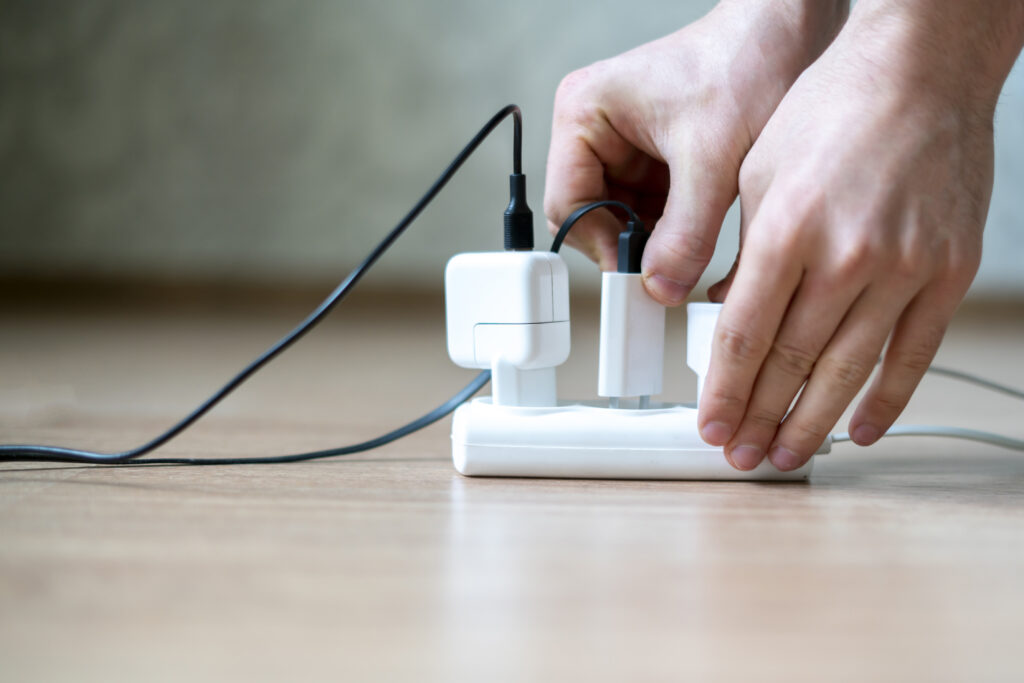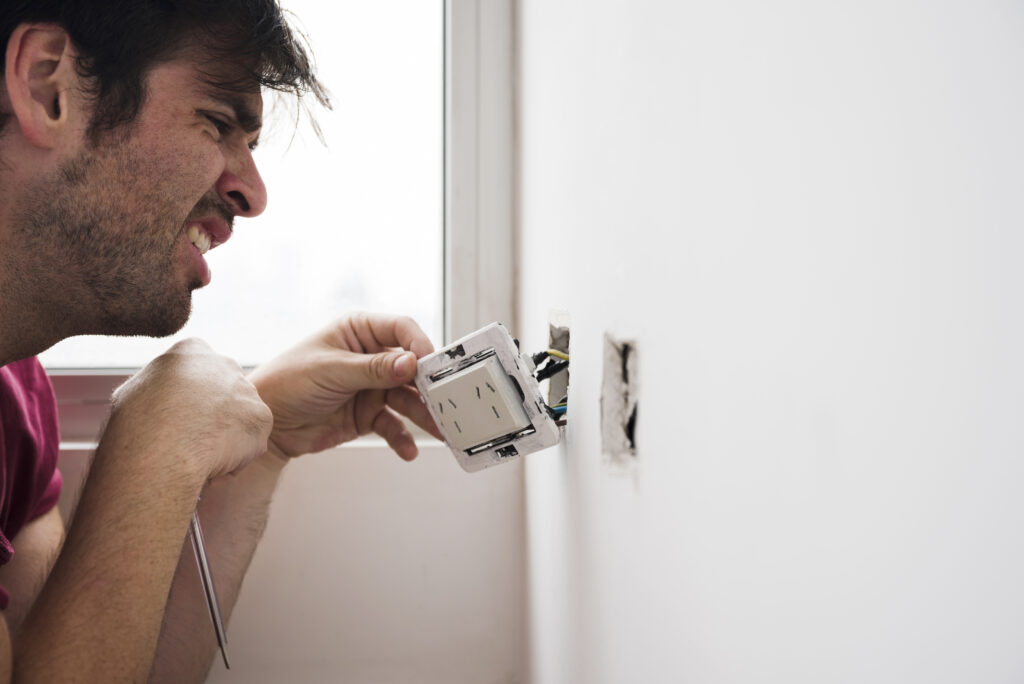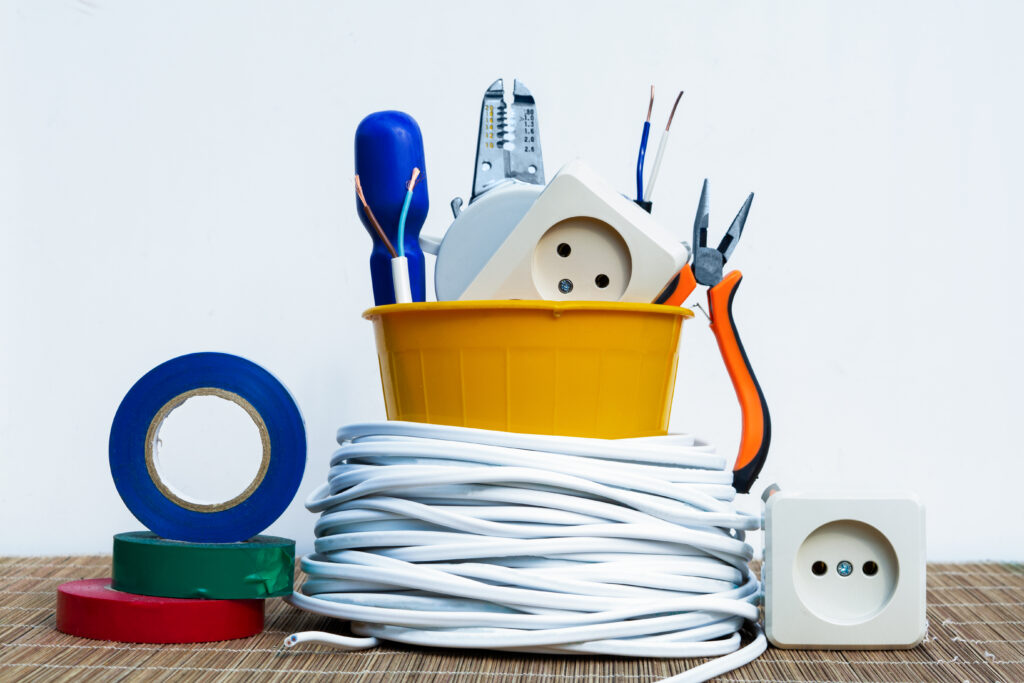Not long ago, a family in Boca Raton’s Boca Harbour neighborhood experienced a sudden power outage while watching TV. Instead of calling for help, they tried to reset the breaker multiple times. Moments later, they saw a small flame flash from the panel. Luckily, they evacuated and called our emergency team at Boca Electrical Service. We arrived to find scorched breakers and overheated wires—minutes away from a full-blown electrical fire.
This situation is more common than you’d think. According to the Electrical Safety Foundation International (ESFI), over 50,000 home fires in the U.S. each year are caused by electrical malfunctions, many due to mistakes made during emergencies. When electricity goes wrong, acting fast—and smart—is critical.
Whether you’re a homeowner in Boca Del Mar or managing a business near Mizner Park, knowing what to do in an electrical emergency can protect your family, employees, property, and peace of mind. This article provides a detailed step-by-step guide and uncovers five dangerous mistakes to avoid in any electrical emergency.
What Is Considered an Electrical Emergency?
Before jumping into action, it’s important to understand what situations qualify as a true electrical emergency. Not every flickering light or power loss is urgent, but some signs point to immediate danger that requires professional help.
An electrical emergency is any sudden issue in your home or business’s electrical system that poses a risk of fire, electrocution, or equipment damage. Emergencies can be caused by storms, faulty installations, overloaded circuits, or aging infrastructure.
Common Signs of Electrical Emergencies
Recognizing the warning signs early can prevent damage and danger. Look for these:
- Smoke or burning smellsfrom outlets, appliances, or electrical panels
- Sparks or arcingwhen plugging in devices
- Sudden loss of powerin parts of your home or building
- Buzzing, popping, or humming soundsin walls, switches, or your breaker box
- Electrical shockswhen touching plugs or light switches
- Hot or discolored outletsor breaker switches
If you encounter any of these symptoms, follow the steps below immediately.
Step-by-Step Guide: What to Do in an Electrical Emergency

When facing an electrical emergency, your safety and the safety of others comes first. Don’t panic—just follow these carefully outlined steps to stay safe and reduce the risk of fire, injury, or costly damage.
Each step is easy to remember, whether you’re at home or running a commercial space.
Step 1: Shut Off Power If It’s Safe
Your electrical panel is the heart of your system. If you smell burning or see sparks but it’s still safe to approach, go to your main breaker panel and switch the power to OFF. This can stop electricity from flowing to the damaged area and reduce the risk of further damage.
Important: If the panel feels hot, is sparking, or smells like something is burning, do not touch it—leave the area immediately and call for help.
Step 2: Evacuate If You See Fire, Smoke, or Arcing
If there are visible flames, smoke, or sparks, don’t take chances. Electrical fires can spread behind walls and ignite flammable materials quickly.
What to Do:
- Get everyone out of the building immediately
- Do not use water on an electrical fire (it can cause electrocution)
- Call 911 and then contact an emergency electrician
If you have a Class C fire extinguisher, use it only if it’s safe to do so.
Step 3: Avoid Metal, Water, and Appliances
During an electrical emergency, stay away from wet areas, metal surfaces, or plugged-in electronics. Water and metal both conduct electricity and can shock or seriously injure you if current is leaking from a faulty source.
Pro tip: Avoid standing on wet floors while inspecting your panel, outlets, or appliances.
Step 4: Unplug Devices to Prevent Surge Damage
If you’ve lost power—or it’s flickering—unplug major appliances like TVs, computers, and kitchen equipment to avoid power surge damage once power returns.
Why it matters: When electricity is restored, a power surge can damage sensitive electronics or even cause a fire.
Step 5: Call a Licensed Emergency Electrician
Once you’ve secured your space and everyone is safe, call a professional. Emergency electricians are trained to safely assess, repair, and prevent future risks.
Call Boca Electrical Service at (561) 320-8539—we provide 24/7 support for homes and businesses in Boca Raton.
5 Shocking Mistakes to Avoid in an Electrical Emergency

Now that you know what to do, it’s just as important to know what notto do. These five common mistakes can make a bad situation worse and put you or your property in serious danger.
Mistake 1: Attempting DIY Electrical Repairs
In an emergency, some people try to take control by opening breaker panels, cutting wires, or resetting circuitswithout knowing the cause.
Why it’s dangerous:
- Can lead to shock or electrocution
- May worsen the issue
- Violates electrical codes and insurance terms
Always leave repairs to licensed professionals.
Mistake 2: Using Water to Put Out Electrical Fires
It’s instinct to grab a bucket of water when you see flames—but never use waterto extinguish an electrical fire.
Better option: Use a Class C fire extinguisher(specifically rated for electrical fires) or evacuate immediately and call emergency services.
Mistake 3: Ignoring Strange Smells or Sounds
If you notice a fishy or burning smell, buzzing sounds, or flickering lights, don’t wait. These are early signs of overheating wires or failing connections.
Delaying repairs can lead to:
- Hidden fires behind walls
- Panel explosions
- Expensive equipment damage
Mistake 4: Overloading Outlets During or After an Outage
When power comes back, plugging in too many devices too quickly or using extension cords improperly can overload circuitsand restart the emergency.
Instead:
- Plug in only essentials one at a time
- Avoid “daisy chaining” power strips
- Consider having surge protectors installed
Mistake 5: Assuming It’s Safe Once Power Is Restored
Just because lights are back on doesn’t mean the problem is fixed. There may be underlying issues that need attention—like damaged wiring or a faulty breaker that will fail again.
What to do: Call for an electrical inspection to ensure the system is safe, even after temporary power is restored.
Electrical Emergencies in Homes vs. Businesses
Emergency situations can happen anywhere, but the risks and consequences differ between residential and commercial properties.
Residential Emergencies
- Often involve aging wiring, breaker failures, or overloaded outlets
- May occur during storms, with portable heaters, or due to outdated panels
- Can pose high risks to children, pets, and seniors
Example:A home in Boca Square lost power during dinner after a faulty outlet overheated. Emergency maintenance revealed loose wiring behind the wall.
Commercial Emergencies
- Can affect customer safety, inventory, and business operations
- Include equipment failures, lighting issues, and code violations
- Require faster response to avoid downtime or fines
Example:A retail shop near Glades Road lost lighting during business hours. We restored their power and repaired a failing junction box within two hours.
How to Prepare Before an Emergency Happens

You can’t always stop emergencies—but you can prepareto handle them more safely and with less stress. Here are a few things every Boca Raton property owner should do:
- Label your breaker panel so you know which switch controls which room
- Have a Class C fire extinguisher in a central location
- Install GFCI outlets in bathrooms, kitchens, and outdoor spaces
- Keep a flashlight, batteries, and our emergency number handy
- Schedule a professional inspection every 3–5 years (or annually for businesses)
Being proactive saves time, money, and possibly lives.
How Can Boca Electrical Service Help You?
At Boca Electrical Service, we’re proud to be Boca Raton’s go-to team for emergency electrical repairs and inspections. Whether you’ve experienced a sudden power loss, sparking outlet, or burning smell, we respond fast—day or night—to keep you safe.
We offer:
- 24/7 emergency electrical services
- Residential and commercial troubleshooting
- Panel replacements and circuit repairs
- Surge protection and fire prevention
- Licensed, insured, and local electricians
Visit us:123 NW 13th St Suite 214-09, Boca Raton, FL 33432
Call anytime:(561) 320-8539
In an electrical emergency, seconds count. Don’t guess—call Boca Electrical Service and let us restore your safety, peace of mind, and power.
Frequently Asked Questions
What should I do if my circuit breaker keeps tripping but there’s no visible damage?
Even if there’s no visible damage, frequent tripping may signal a hidden issue like an overloaded circuit or faulty wiring—it’s best to call a licensed electrician for inspection.
Can turning off all breakers prevent an electrical fire during a storm?
Turning off breakers can reduce risk, but it doesn’t guarantee fire prevention; proper surge protection and routine maintenance are more effective long-term solutions.
Is it safe to reset a breaker after a power outage?
Yes, if there’s no smell, noise, or heat from the panel—but if the breaker trips again immediately, call an electrician to investigate further.
How do I know if my home’s electrical system is outdated?
Homes over 25 years old with original panels, two-prong outlets, or no GFCIs likely need an upgrade—an inspection can confirm if your system meets current safety standards.